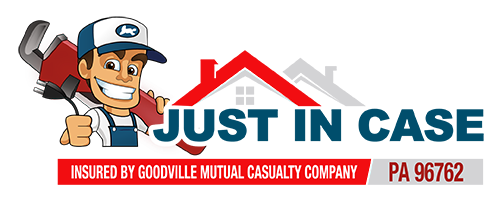Plumbing Maintenance Tips for New Homeowners
Homeowners can handle basic plumbing tasks, but persistent clogs, major leaks, and water heater issues require a professional plumber. Regular inspections help prevent major repairs and maintain the system.
Owning a new home comes with the responsibility of maintaining various systems, including plumbing. Proper plumbing maintenance prevents costly repairs and ensures the system functions efficiently. Here are some practical tips for new homeowners to maintain their plumbing.
Understanding the Plumbing System
Familiarizing oneself with the layout and components of the home's plumbing system is the first step in effective maintenance. Homeowners should know the location of the main water shut-off valve in case of an emergency, like a burst pipe or severe leak. Additionally, understanding the locations of individual shut-off valves for sinks, toilets, and appliances can help quickly address minor issues without disrupting the entire water supply.
Regular Inspection for Leaks
Regularly inspecting for leaks is vital for maintaining a healthy plumbing system. Even insignificant leaks can lead to significant water damage and higher utility bills over time. Common areas to check include under sinks, around faucets, and near appliances like dishwashers and washing machines. If signs of leaks are detected, such as water stains, dampness, or a musty odor, contacting a local plumber for a professional assessment and repair is advisable.
Preventing Clogged Drains
Clogged drains are a common issue, and homeowners can easily prevent them. Drain screens in sinks and showers help catch hair, food particles, and debris before entering the pipes. Avoiding pouring grease and oil down the kitchen sink also prevents build-up that can lead to clogs. Regularly flush the drains with hot water to keep them clear. In the event of a persistent clog, a local plumber can provide safe and practical solutions to restore proper drainage.
Maintaining the Water Heater
The water heater is a crucial component of the plumbing system that requires regular maintenance to operate efficiently. Flushing the water heater once a year removes sediment build-up, which can reduce heating efficiency and increase energy consumption. Checking the temperature setting and keeping it at 120 degrees Fahrenheit helps prevent scalding and saves energy. A local plumber can perform routine maintenance on the water heater to ensure it remains in good working condition.
Caring for Outdoor Plumbing
Outdoor plumbing, including garden hoses, faucets, and irrigation systems, also requires attention. Before winter, disconnect and store garden hoses indoors to prevent freezing and damage. Insulating outdoor faucets and pipes can help protect them from cold weather. Regularly inspecting the irrigation system for leaks or broken components ensures efficient water usage and prevents potential damage to the landscape.
Monitoring Water Pressure
Maintaining appropriate water pressure is essential for the longevity of the plumbing system. Excessively high water pressure can cause stress on pipes, leading to leaks and bursts. Installing a pressure regulator helps maintain water pressure within safe limits. If water pressure seems unusually high or low, a local plumber can diagnose and address the issue to protect the plumbing system.
Proper Toilet Maintenance
Toilets are a significant part of the plumbing system that require proper maintenance to function correctly. Avoiding flushing non-flushable items, such as wipes, sanitary products, and paper towels, prevents clogs. Regularly checking the toilet for leaks, particularly around the base and tank, helps identify issues early. Replacing worn-out flappers and other components can improve the toilet's efficiency and reduce water waste.
Addressing Hard Water Issues
In areas with hard water, mineral deposits can build up in water lines and appliances, reducing efficiency and lifespan. Installing a single-point or whole-house water softener can alleviate the effects of hard water by reducing mineral content. Regularly cleaning faucets, showerheads, and appliances with vinegar can help remove mineral build-up. Consulting a local plumber can provide more solutions for managing hard water effectively.
Knowing When to Call a Plumber
While homeowners can handle many plumbing maintenance tasks, some require a professional's expertise. Knowing when to call a local plumber can prevent minor problems from becoming major repairs. A professional plumber best addresses persistent clogs, significant leaks, and issues with the water heater. Routine inspections and maintenance by a local plumber can help keep the plumbing system in optimal condition.
Energy and Water Conservation
Implementing energy and water conservation measures can benefit the environment and the plumbing system. Installing low-flow faucets, showerheads, and toilets reduces water usage without compromising performance. Fixing leaks promptly and using water-efficient appliances can significantly lower utility bills. A local plumber can recommend and install conservation-friendly fixtures and appliances to enhance efficiency.
Effective plumbing maintenance is essential for new homeowners to prevent costly repairs and ensure the system operates efficiently. Understanding the plumbing system, regularly inspecting for leaks, preventing clogs, and maintaining the water heater are crucial steps. Caring for outdoor plumbing, monitoring water pressure, and addressing hard water issues also contribute to a well-functioning system. Knowing when to call a local plumber for professional assistance ensures that any issues are resolved promptly and effectively. By following these tips, new homeowners can enjoy a reliable and efficient plumbing system in their homes.
Just in Case Mechanical is a reliable plumbing professional for sewer services, sink installation and repair, toilet installation and repair, water heater installation and repair, gas line services, backflow services, leak detection, septic tank services, and water filter services in Lancaster County. Contact us at (717) 696-1511.

